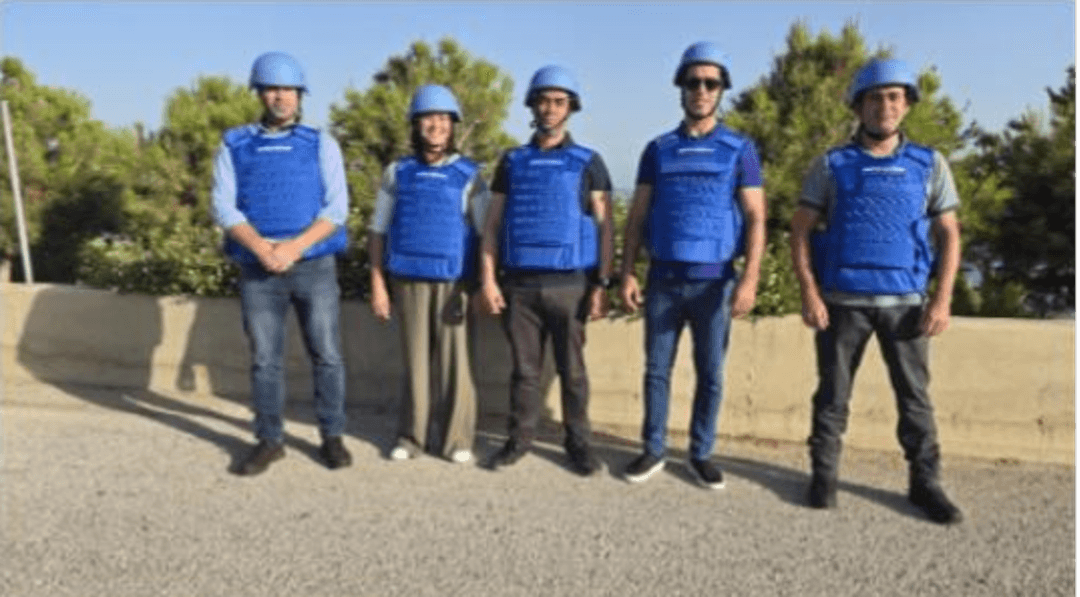AuditaONU Project Conducts Audit During Transitional Phase of Lebanon Peacekeeping Mission
By Secom / Serint

Between September 15 and October 3, the AuditaONU team conducted an audit of the UN Interim Force in Lebanon (UNIFIL). In addition to regular financial and management audits, the project aimed to verify the preparation of the peacekeeping mission for the transitional phase marked by a reduction of personnel and the gradual transfer of security responsibilities to the Lebanese Armed Forces (LAF).
The audit included an evaluation of aspects of liquidity, asset management, human resources, environmental management, procurement, equipment and daily allowances of troops, among others. The team also verified military equipment, security measures, and environmental remediation, verified the frequency and content of inspections carried out by the mission, and gathered information on contingents and payments to troop-contributing countries.
Local context and challenges
The complexity of the audit reflects the Lebanese context. The atmosphere in the region remains tense, even after the ceasefire between Israel and Hezbollah in November 2024. Air strikes, carried out by airplanes or drones, still occur almost daily in different parts of Lebanon, especially south of the Litani River within UNIFIL's Area of Operations.
The audit was conducted during a delicate period, amid the unstable political and military situation. In August, the United Nations Security Council decided to extend the mission's mandate for the last time, until December 31, 2026, determining a gradual withdrawal in 2027. The transition brings uncertainty about the future stability of the region and apprehension among local officials, many of them served for decades and will face the discontinuity of their ties. UNIFIL management must keep operations while simultaneously planning for the mission's closure.
The auditors were only allowed fieldwork by following strict safety protocols. All movements were previously communicated to UNIFIL and had logistics planned in detail to ensure the auditors integrity and work effectiveness.
During field activities, the team visited one of the mission's forward operating bases in the vicinity of the Blue Line in southern Lebanon. They could witness the humanitarian and material impacts of the conflict, such as destroyed villages and displaced families, highlighting the high cost of the war.
Most activities were concentrated at UNIFIL's headquarters in Naqoura, in southern Lebanon, near the Israeli border. The team remained in Tyre, a coastal city about 38 kilometers away that serves as UN's main support hub in the region.
UNIFIL: Complexity amid diversity
Established in 1978, the United Nations Interim Force in Lebanon (UNIFIL) is one of the largest peacekeeping missions of the United Nations, with over 10,500 blue helmets from 48 countries, distributed in 50 bases over 1,060 square kilometers. This is the only UN peacekeeping mission that has a Maritime Task Force, with five ships securing the Lebanese coastline to prevent arms smuggling.
The audit was coordinated by José Arimathea Valente Neto, head of the TCU Office in the state of Rio Grande do Norte, and had the participation of auditors Getúlio Martins Padilha Júnior and Vitor Forjaz Rodrigues Caldas, both from AudPortoFerrovia; Jordana Farias Pereira, from AudBenefícios; Luciano Aires Teixeira, head of the TCU Office in the state of Santa Catarina; and Ricardo Broegaard Jonas, from the Department for Auditing United Nations Operations (SecexONU), who monitored the progress of the work remotely.